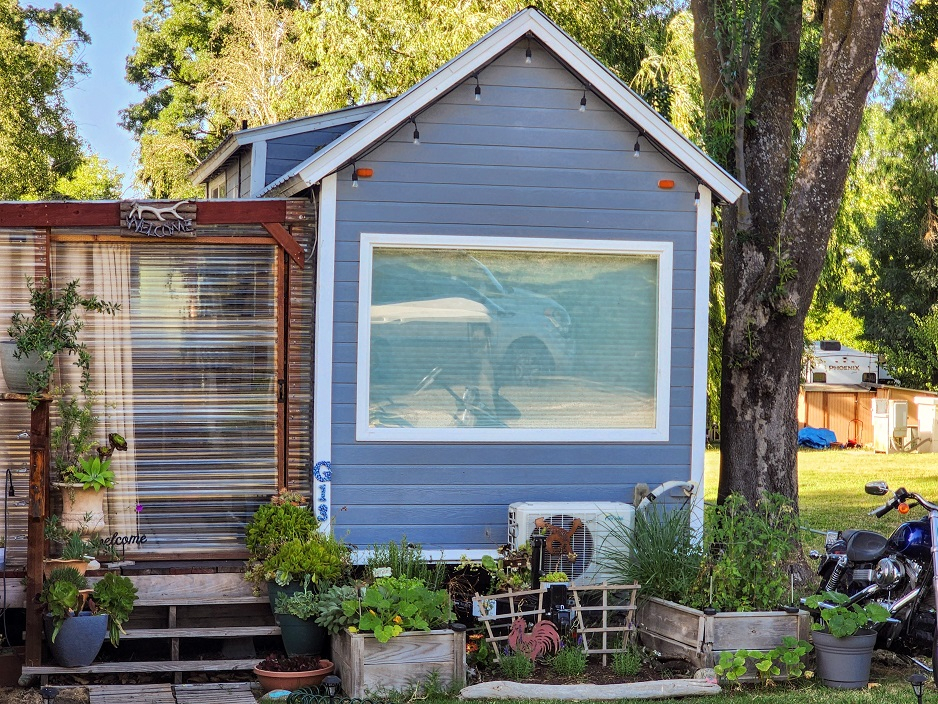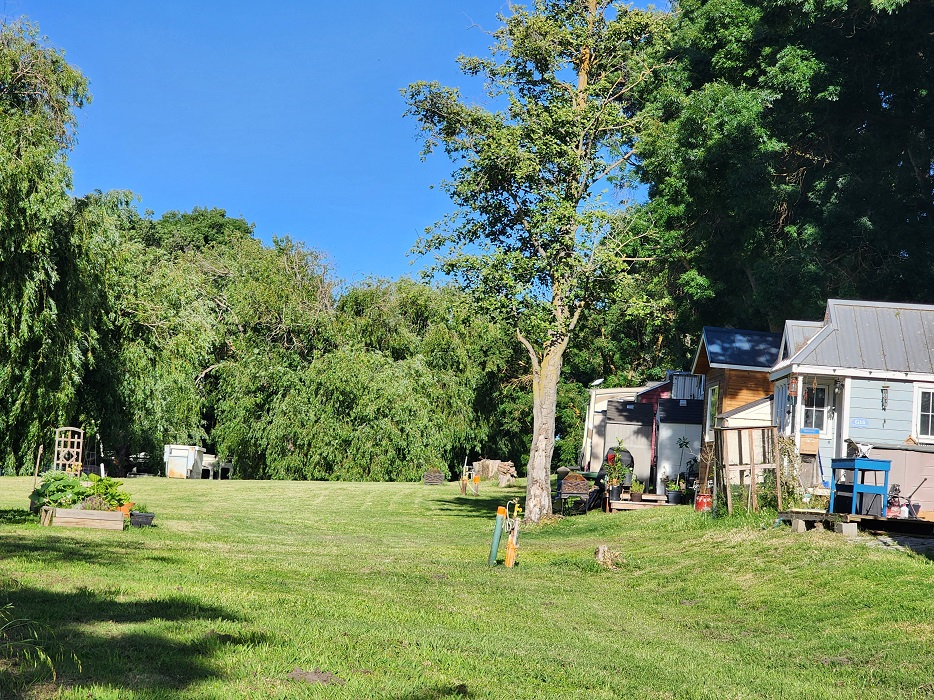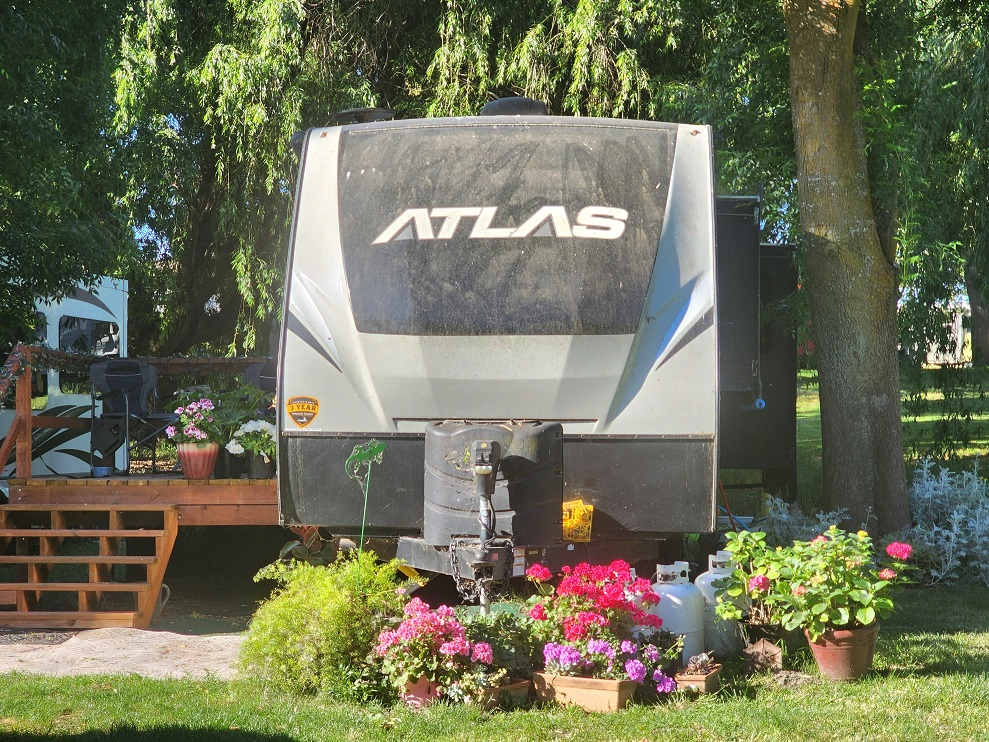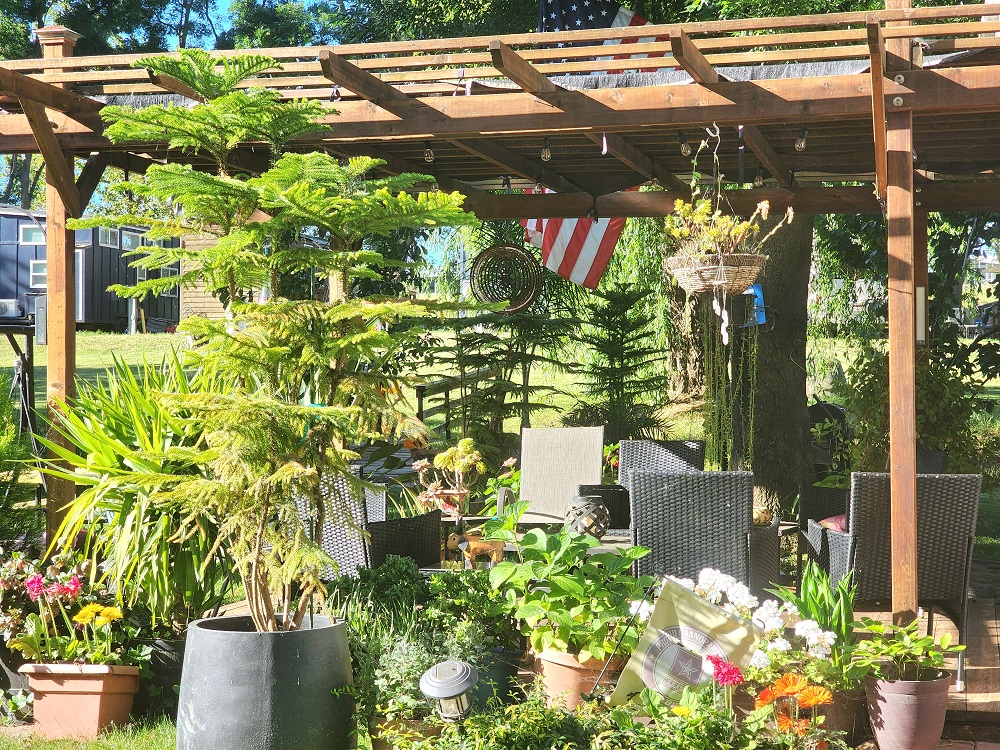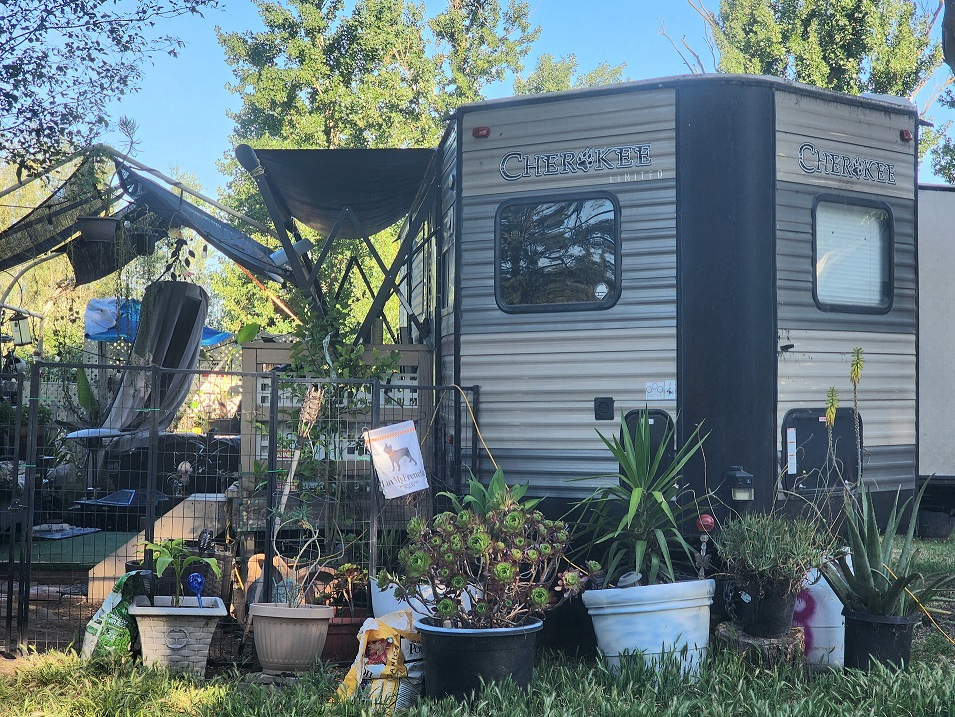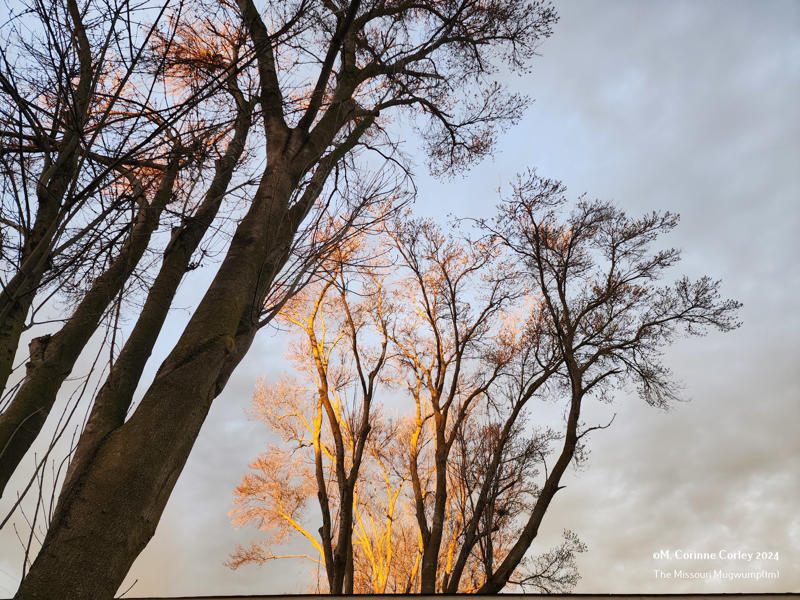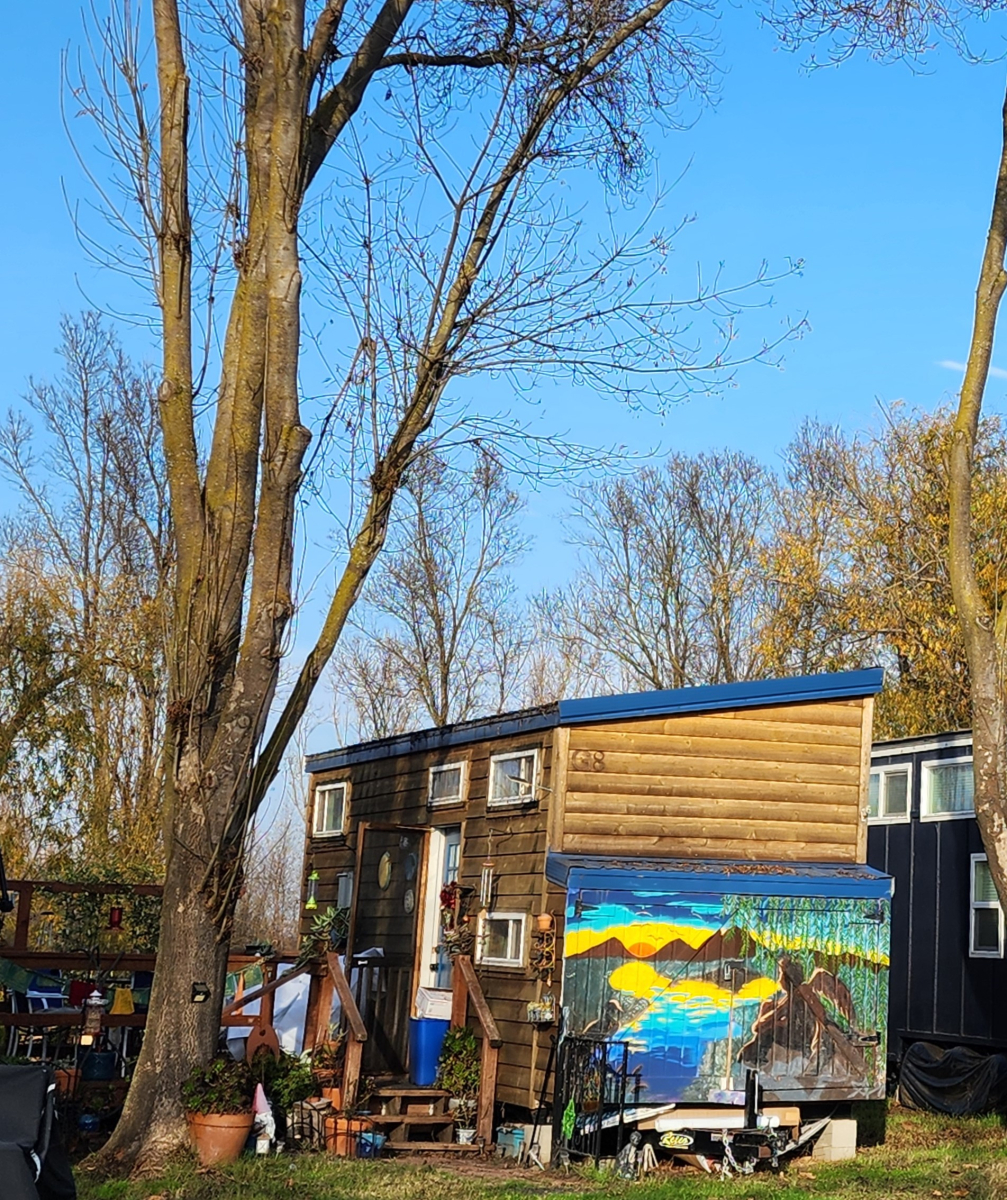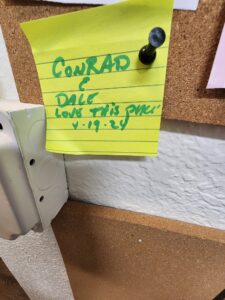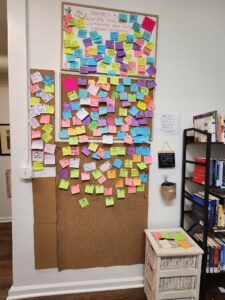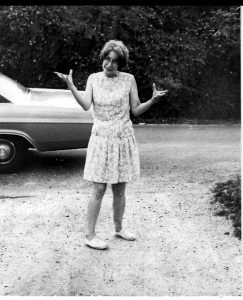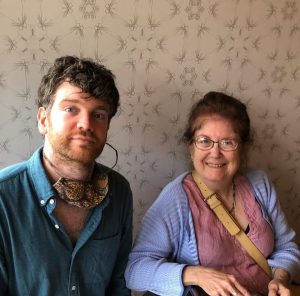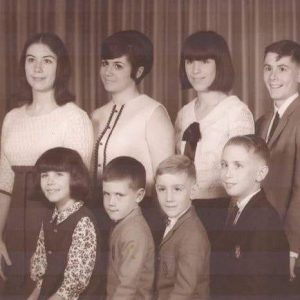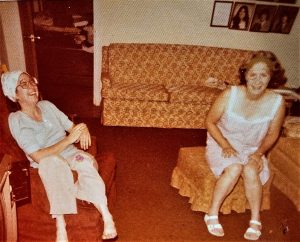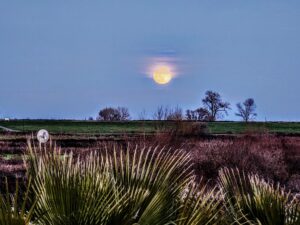I moved to California at Christmas-time in 2017. I had planned to live in Sonoma County, but the RV park where I had a reservation burned in a devastating fire that October. I scrambled for another spot, first talking with a person who had private property. Ultimately, that place struck me as too isolated – a choice proved prescient. That land lay in the mountains above Paradise, which burned just a year later in November of 2018.
A tip from a stranger led me to Park Delta Bay. Folks with RVs displaced by the Tubbs Fire fled to another park north of the Bay, the managers of which came from Missouri. Seeing my useless reservation on the books of the destroyed park, they called to say they didn’t have room for me. They suggested “this place in the Delta that wants tiny houses”. Speaking over the phone from Kansas City, I expressed surprise. “’The Delta’,” I repeated. “Isn’t that in Mississippi?”
“Not that one,” they laughed. They gave me the phone number and manager’s name of Park Delta Bay RV Park & Tiny House Resort, located on Andrus Island, adjacent to the San Joaquin River. Two months later, I stood in front of Lot G8 waiting for my builder to arrive and back Angel’s Haven into her new home, where she – and I – have dwelt ever since.
Having dodged two of the worst fires in California history, I chose to believe that my future belonged to the California Delta. When people asked me why I moved here, I would utter some variation of a standard evasion. “Why not?” I would counter. Or I would smile and simply say that it was a long story. Few probed more deeply. I spent my first year flying back and forth to try cases “back home”, a term that I still use to describe Kansas City. A week in Missouri; a month in California; three weeks back home, two weeks at Park Delta Bay. I had no chance to form attachments.
Yet by the time I settled in earnest, as 2019 bloomed, I seemed to have established myself. We started having community dinners. The park management recruited me to do occasional blog posts and monitor the Facebook page. Tiny House Row grew from three to fifteen. Moreover, I got to know people in other types of dwellings, learning what differentiated a “trailer” from an “RV” and how to distinguish a Class A from a fifth wheel. I came to understand that sustainable, small, self-contained living came in many shapes and interesting sizes. Folks pursued this life for a multitude of reasons, from wanting to live more simply to craving mobility. No two stories followed the same path to the Delta. My new community defied stereotype.
When the pandemic hit, we long-term dwellers upon these fifteen acres existed in a bubble. Though I work in an essential industry and continued going to the office each day, many of my neighbors stayed home. We moved our weekly gatherings outside. We started a market in the central meadow, staging the vendor tables six feet apart and distributing masks to visitors. We tried to continue our lives, though some of our closest cohorts left the park between lockdowns.
As the global health crisis waned, we noticed that we had grown closer as a community but also reconfigured. New folks pulled their rigs into spaces from which beloved faces had decamped. Vacationers came and went, occasionally participating in our events. The garden we had started in 2018 died during the pandemic but got rejuvenated in 2022 and thrives today. New people took over the organization of our dinners.
All the while, the river flowed, the cars rolled by on the levee road above us, and the sun set over the old abandoned crane at the hairpin turn on Jackson Slough Road.
We’ve lost some friends whom we still salute, and for whom tears still flow from our half-closed eyes. I picture Candice’s father John driving away on his golf cart after stealth-weedeating my lot. He lifts one hand, without stopping, to acknowledge my thanks. Other friends moved away; some lost touch, some still return to our joyful embrace. My heart leaps as Spike comes down the driveway on his bike or Gerri and Carole alight from their car. We remember them all. They live in our hearts. Our DNA evolved because of them. We hear their voices; we recite their names; we can still picture their smiles, hear their jokes, treasure their advice, luxuriate in their compassion.
In 2017 as I prepared to leave the Midwest, I made a trip to see family and distribute trinkets that I’d accumulated from various relatives over the years. I traveled to rural Missouri, then to the east side of the state, and eventually to my son’s place in Chicago. One night, I stood with my brother Frank outside of his house near Tower Grove Park in south St. Louis. We drank cold beverages and stared at the sky, knowing that soon, three days’ travel would prohibit the frequent visits that we could barely orchestrate with only four hours between us. Finally, Frank said to me, “Just tell me you aren’t going to live in a trailer park.” I laughed. “Okay,” I quipped. “I won’t tell you.” He put his arm around my shoulder and we fell silent again. “I hope it’s a good place,” he said, so quiet that I barely heard him.
It is a good place. It’s got faults – what old facility doesn’t? It’s plumbing requires constant attention. The electricity had to be overhauled in my first year here. The restoration of worn cabins that pre-date the current ownership screeched to a halt when material prices skyrocketed during Covid. Moreover, being in the Delta means that if the wind rises or too many migrating birds land on the wires, we could lose power for days. In February we endure weeks of torrential rains but the rest of the year, we fret over drought that could kill the fruit crops.
Yet with all of that, I cannot help but feel that those Missouri folks steered me right when they sent me to the Delta and to Park Delta Bay. Each morning when I leave for work, Candice at the Kiosk waves and tells me that I should have a good day. I watch as staff members who are cherished friends toil to get the pool ready for summer. I toot my horn at Marje, who walks the Delta Loop each morning despite her 80+ years. Dia from the east side of the park flashes a grin as she trots past with her dogs on training leads. A sign tells me that there will be an art class in the community room this Saturday. A camper pulls up to the office and I think, “Ah, we have visitors,” and then laugh to myself.
Visitors, I repeat, this time out loud in the car as I circle the Loop and pause to photograph a lone egret at the edge of the river. Those are visitors, but I live here. It might be – as a neighbor once observed – a land of broken toys. If so, I have happily made my place among the old stuffed bears and the bedraggled shoeless dolls. After all, who better than a Midwest ex-pat to understand that in the final analysis, there really is no place like home.
It’s the twenty-third day of the one-hundred and twenty-fifth month of My Year Without Complaining. Life continues.
